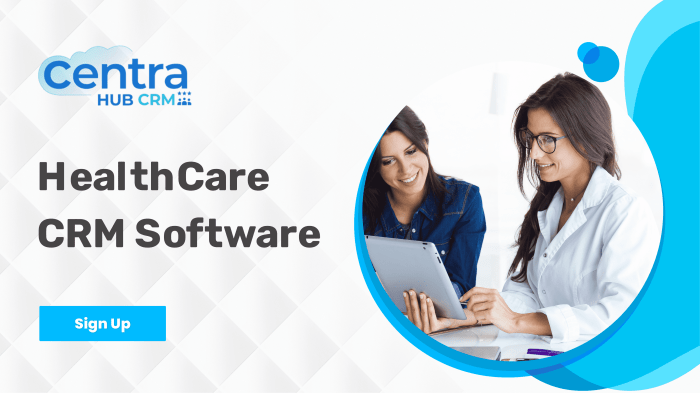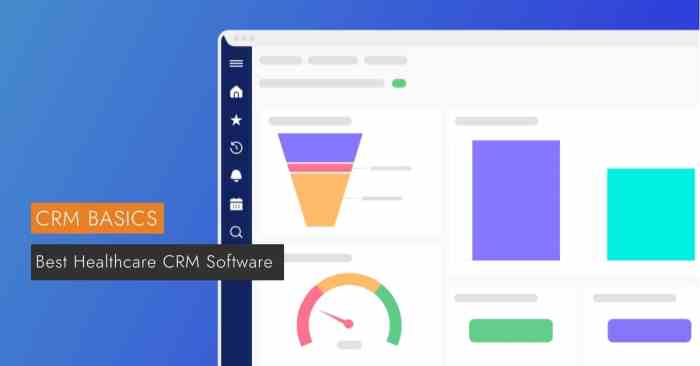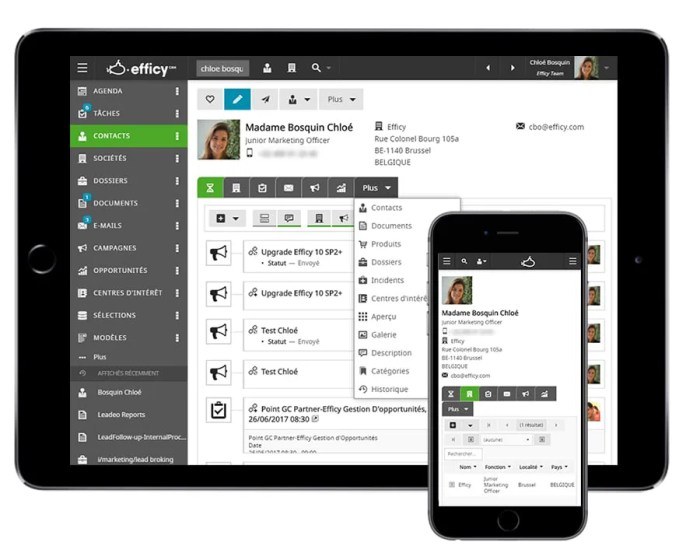The healthcare industry is rapidly evolving, demanding efficient and effective ways to manage patient relationships, streamline workflows, and improve overall patient care. A robust Healthcare CRM (Customer Relationship Management) system is no longer a luxury but a necessity for clinics, hospitals, and other healthcare providers. This comprehensive guide explores the best healthcare CRM software options available, helping you choose the perfect solution to enhance your practice’s efficiency and patient experience.
Understanding the Need for Healthcare CRM Software
Healthcare providers face unique challenges in managing patient information, appointments, and communications. Traditional methods often fall short, leading to inefficiencies, missed appointments, and poor patient satisfaction. A healthcare CRM addresses these challenges by centralizing patient data, automating tasks, and improving communication across departments. Key benefits include:
- Improved Patient Engagement: Personalized communication, appointment reminders, and follow-up care improve patient satisfaction and adherence to treatment plans.
- Streamlined Workflow: Automation of tasks like appointment scheduling, billing, and follow-up reduces administrative burden and frees up staff time.
- Enhanced Data Management: Centralized patient records provide easy access to complete medical histories, improving care coordination and reducing errors.
- Better Communication: Seamless communication between patients, doctors, and staff improves coordination and reduces misunderstandings.
- Increased Revenue: Improved efficiency and patient satisfaction can lead to increased patient retention and revenue generation.
- HIPAA Compliance: Top-tier healthcare CRMs prioritize data security and privacy, ensuring compliance with HIPAA regulations.
Key Features of Top Healthcare CRM Software: Best Healthcare Crm Software
When selecting a healthcare CRM, consider these essential features:
Patient Management Capabilities:
- Centralized Patient Database: A single source of truth for all patient information, including medical history, insurance details, and contact information.
- Patient Portals: Secure online portals allowing patients to access their records, schedule appointments, and communicate with providers.
- Appointment Scheduling: Automated scheduling features with calendar integration and reminder functionalities.
- Electronic Health Records (EHR) Integration: Seamless integration with existing EHR systems to avoid data duplication and ensure data consistency.
Communication & Collaboration Tools:
- Secure Messaging: HIPAA-compliant messaging system for secure communication between patients and providers.
- Automated Reminders: Automated appointment reminders, medication reminders, and follow-up reminders to improve patient adherence.
- Team Collaboration Features: Tools to facilitate communication and collaboration among healthcare professionals.
Reporting & Analytics:, Best healthcare crm software
- Customizable Reporting: Generate reports on key metrics such as patient demographics, appointment scheduling, and revenue.
- Data Analysis: Analyze data to identify trends and improve operational efficiency.
Other Important Considerations:
- Scalability: The system should be able to adapt to the changing needs of your practice as it grows.
- Security & Compliance: Ensure the system complies with HIPAA and other relevant regulations.
- Integration Capabilities: Seamless integration with other healthcare software, such as billing systems and EHRs.
- User-Friendliness: The system should be easy to use and navigate for both staff and patients.
- Customer Support: Reliable customer support is crucial for addressing any issues or questions.
Top Healthcare CRM Software Options
The market offers a variety of healthcare CRM solutions. The best choice depends on your specific needs and budget. Here are a few popular options:

Source: cloudfront.net
- Salesforce Health Cloud: A comprehensive platform offering robust features for patient engagement, care coordination, and data management. Known for its scalability and extensive integration capabilities. [Source: Salesforce Website]
- HubSpot CRM: While not exclusively designed for healthcare, HubSpot’s flexible platform can be adapted to meet the needs of many healthcare providers, particularly smaller practices. Its strength lies in its marketing automation features. [Source: HubSpot Website]
- Practice Fusion: An all-in-one platform combining EHR, practice management, and CRM functionalities. A good option for practices seeking a complete solution. [Source: Practice Fusion Website]
- Kareo: A cloud-based platform offering practice management, billing, and CRM capabilities. Known for its user-friendly interface and robust reporting features. [Source: Kareo Website]
- AdvancedMD: Provides comprehensive solutions for medical practices, including CRM, scheduling, billing, and patient communication tools. [Source: AdvancedMD Website]
Note: This is not an exhaustive list, and the suitability of each platform varies based on individual practice requirements. Thorough research and comparison are crucial before making a decision.
Choosing the Right Healthcare CRM: A Step-by-Step Guide
1. Assess your needs
Identify your practice’s specific requirements and challenges.
2. Research different options
Explore various CRM platforms, comparing their features, pricing, and user reviews.
3. Request demos
Schedule demos with shortlisted vendors to experience the software firsthand.
4. Consider integration
Ensure the CRM integrates seamlessly with your existing EHR and other software.
5. Check security and compliance
Verify the platform’s compliance with HIPAA and other relevant regulations.
6. Evaluate pricing and support
Compare pricing models and the level of customer support offered.

Source: veloxity.com
7. Implement and train
Provide adequate training to your staff on the new system.
Frequently Asked Questions (FAQ)
- Q: What is the cost of healthcare CRM software? A: The cost varies greatly depending on the features, vendor, and number of users. Expect a range from free plans (with limited features) to several hundred dollars per month for enterprise-level solutions.
- Q: Is my data secure in a healthcare CRM? A: Reputable healthcare CRM providers prioritize data security and comply with HIPAA regulations. Look for platforms with robust security measures, such as encryption and access controls.
- Q: How long does it take to implement a healthcare CRM? A: Implementation time varies depending on the complexity of the system and the size of your practice. Expect a timeframe ranging from a few weeks to several months.
- Q: Can a healthcare CRM integrate with my existing EHR system? A: Many healthcare CRMs offer integration with popular EHR systems. Verify compatibility before making a purchase.
- Q: What are the benefits of using a healthcare CRM? A: Benefits include improved patient engagement, streamlined workflows, enhanced data management, better communication, increased revenue, and HIPAA compliance.
Conclusion
Investing in the right healthcare CRM software is a crucial step towards improving patient care, enhancing operational efficiency, and achieving sustainable growth. By carefully considering your needs and evaluating different options, you can find the perfect solution to transform your practice and deliver exceptional patient experiences. Remember to prioritize features like HIPAA compliance, seamless integration, and robust security to ensure a successful implementation.
Call to Action
Ready to elevate your healthcare practice? Explore the options mentioned above and request a demo today! Start improving patient care and streamlining your workflows with a powerful healthcare CRM.
Frequently Asked Questions
What is the average cost of healthcare CRM software?

Source: b-cdn.net
Costs vary greatly depending on features, scalability, and vendor. Expect to see a range from monthly subscription fees for smaller practices to significant upfront investments for larger organizations with complex needs.
How can I ensure my chosen CRM software is HIPAA compliant?
Thoroughly review the vendor’s security protocols and certifications. Look for evidence of HIPAA compliance, including data encryption, access controls, and audit trails. Consult with a legal professional specializing in healthcare data privacy for additional guidance.
What are the key features to look for in a healthcare CRM?
Essential features include secure patient data management, appointment scheduling, communication tools (email, SMS, portals), reporting and analytics, and seamless integration with existing EHR/EMR systems.
How long does it typically take to implement a healthcare CRM?
Implementation timelines vary, depending on the complexity of the system and the size of your organization. Expect a process ranging from a few weeks to several months.
